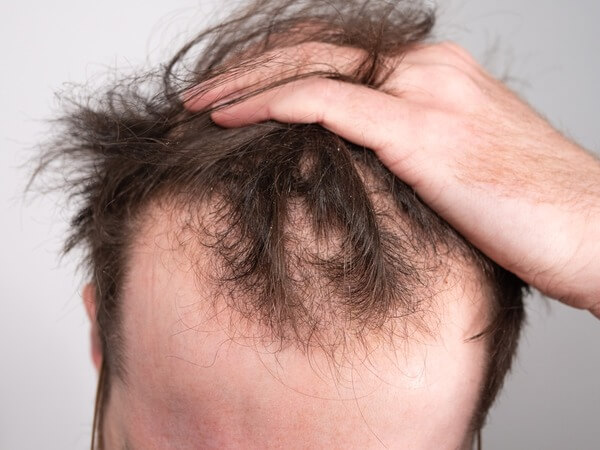Mold is a hidden menace that affects millions of households, but could it also be the cause of unexpected hair loss? If you’ve noticed thinning hair or patches of hair falling out and suspect mold exposure, this article delves into the surprising connection between mold and hair loss, its health impacts, and what you can do to protect yourself.
Does Mold Exposure Really Lead to Hair Loss?

The short answer is: Yes, mold exposure can contribute to hair loss, but it’s not a direct cause. Prolonged exposure to toxic mold, particularly black mold (Stachybotrys chartarum), releases mycotoxins into the air. When inhaled or absorbed through the skin, these mycotoxins can cause systemic inflammation, which affects your scalp and hair health.
Here’s how mold exposure indirectly causes hair loss:
- Immune Response: Chronic exposure can trigger an autoimmune reaction, attacking hair follicles.
- Stress and Fatigue: Mold-related illnesses often cause fatigue and stress, which are leading factors in hair loss.
- Scalp Irritation: Mold spores can settle on the scalp, leading to itching, irritation, and inflammation.
Symptoms of Mold-Related Hair Loss
![]()
Hair loss due to mold exposure is typically accompanied by other symptoms. If you’re experiencing the following, mold might be a contributing factor:
- Persistent coughing, sneezing, or sinus congestion
- Skin rashes or irritation, particularly on the scalp
- Chronic fatigue or brain fog
- Hair thinning or bald patches, often accompanied by scalp inflammation
Table: Common Symptoms of Mold Exposure and Hair Loss
| Symptom | Cause |
|---|---|
| Hair thinning | Inflammation and autoimmune response |
| Scalp irritation | Mold spore contact |
| Fatigue and stress | Mycotoxin exposure |
| Respiratory issues | Inhalation of mold spores |
How to Identify Mold in Your Home
Detecting mold early is critical for preventing its health effects, including potential hair loss. Here’s what to look for:
- Visible Growth: Black, green, or white patches on walls, ceilings, or carpets.
- Musty Odor: A persistent, damp smell in certain rooms.
- Health Symptoms: Allergy-like symptoms that worsen indoors.
If you suspect mold in your home, schedule a professional inspection with Citywide Mold Mitigation, a trusted name in mold removal and prevention.
Can You Reverse Hair Loss Caused by Mold Exposure?
Reversing hair loss caused by mold exposure is possible but requires addressing both the environmental and health factors involved. Here’s how:
Step 1: Remove Mold from Your Environment
- Hire a professional remediation service to remove mold safely.
- Fix leaks, improve ventilation, and maintain humidity below 50% to prevent regrowth.
Step 2: Treat Your Scalp and Hair
- Consult a dermatologist for scalp treatments like corticosteroids or hair regrowth therapies.
- Use gentle, anti-inflammatory shampoos to soothe irritation.
Step 3: Strengthen Your Immune System
- Adopt a healthy diet rich in vitamins and antioxidants.
- Consider supplements like biotin or zinc to promote hair regrowth.
Preventing Mold-Related Hair Loss: A Proactive Approach
Prevention is always better than treatment. Take these steps to minimize mold exposure in your home:
- Inspect your home regularly for signs of mold.
- Use a dehumidifier to keep indoor humidity levels low.
- Clean HVAC systems and replace air filters frequently.
- Ensure proper ventilation in bathrooms, kitchens, and basements.
FAQs About Mold and Hair Loss
| Question | Answer |
|---|---|
| Can all types of mold cause hair loss? | Not all molds cause hair loss. Toxic molds like black mold release mycotoxins that can lead to inflammation and hair thinning. |
| Is hair loss from mold exposure permanent? | Hair loss caused by mold is often reversible if treated promptly and the mold is removed from the environment. |
| How can I test for mold in my home? | DIY mold test kits are available, but professional mold inspection services offer more accurate results. |
| What shampoo should I use for mold-related hair loss? | Look for anti-inflammatory shampoos with natural ingredients to soothe the scalp and reduce irritation. |
| How do I know if mold exposure is causing my hair loss? | Hair loss accompanied by respiratory symptoms, fatigue, or scalp irritation may indicate mold exposure as a contributing factor. |
Don’t Let Mold Ruin Your Health and Hair
Mold exposure is a hidden culprit behind many health issues, including hair loss. If you suspect mold is affecting your home or health, taking action today can make all the difference. For professional mold remediation, trust Citywide Mold Mitigation. Protect your home, health, and hair from the damaging effects of mold.

